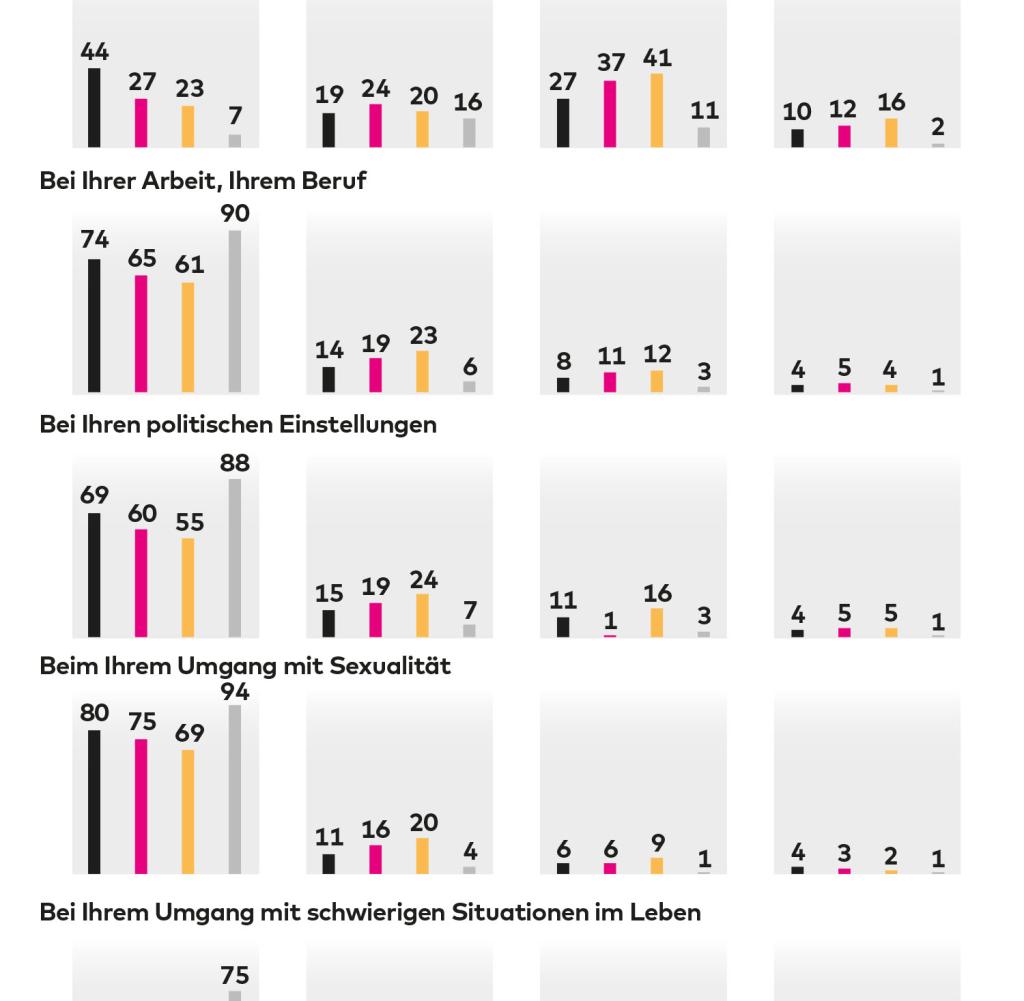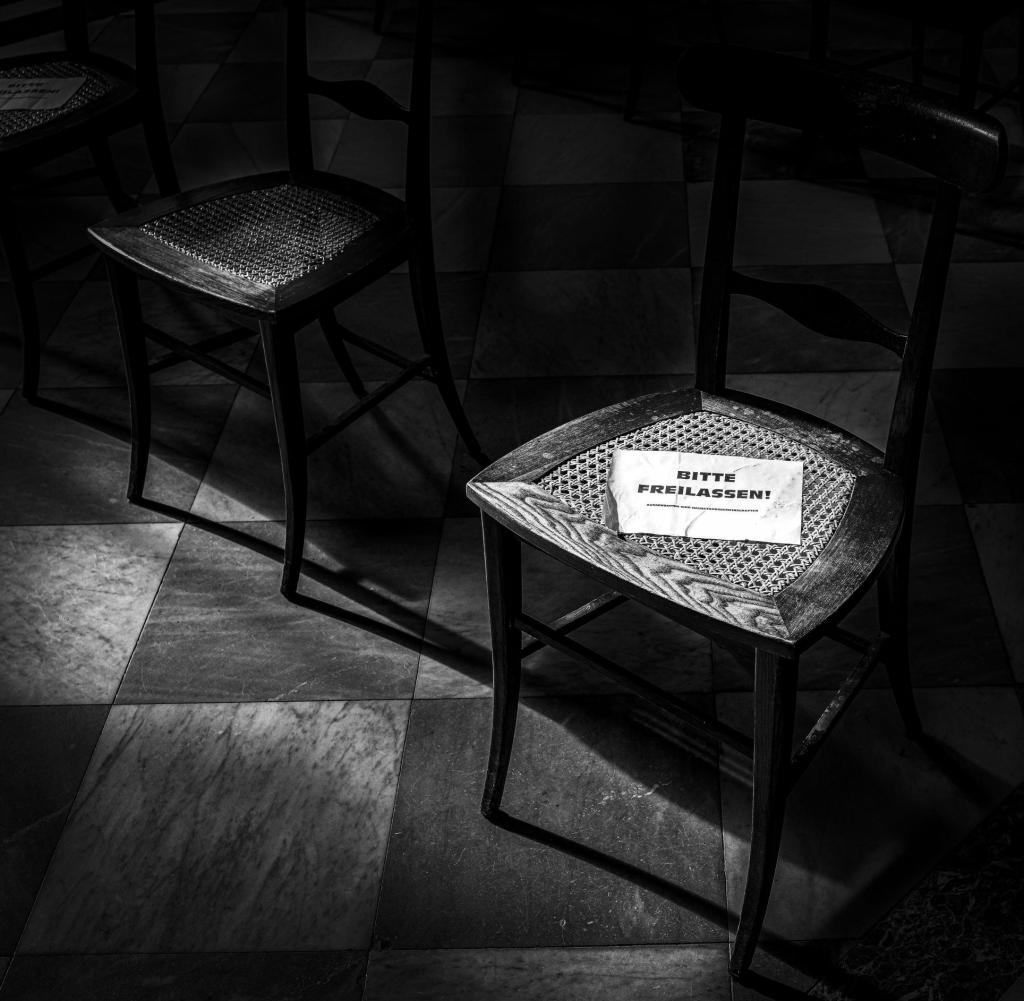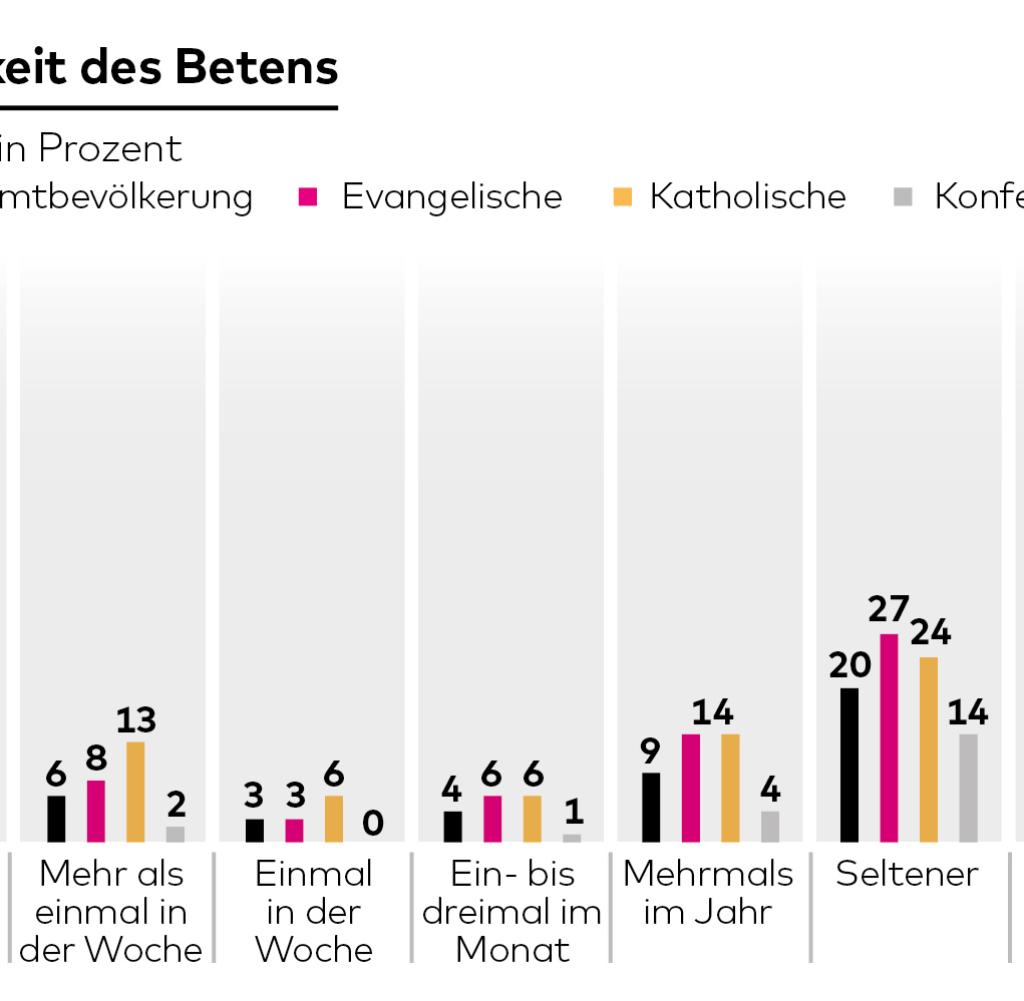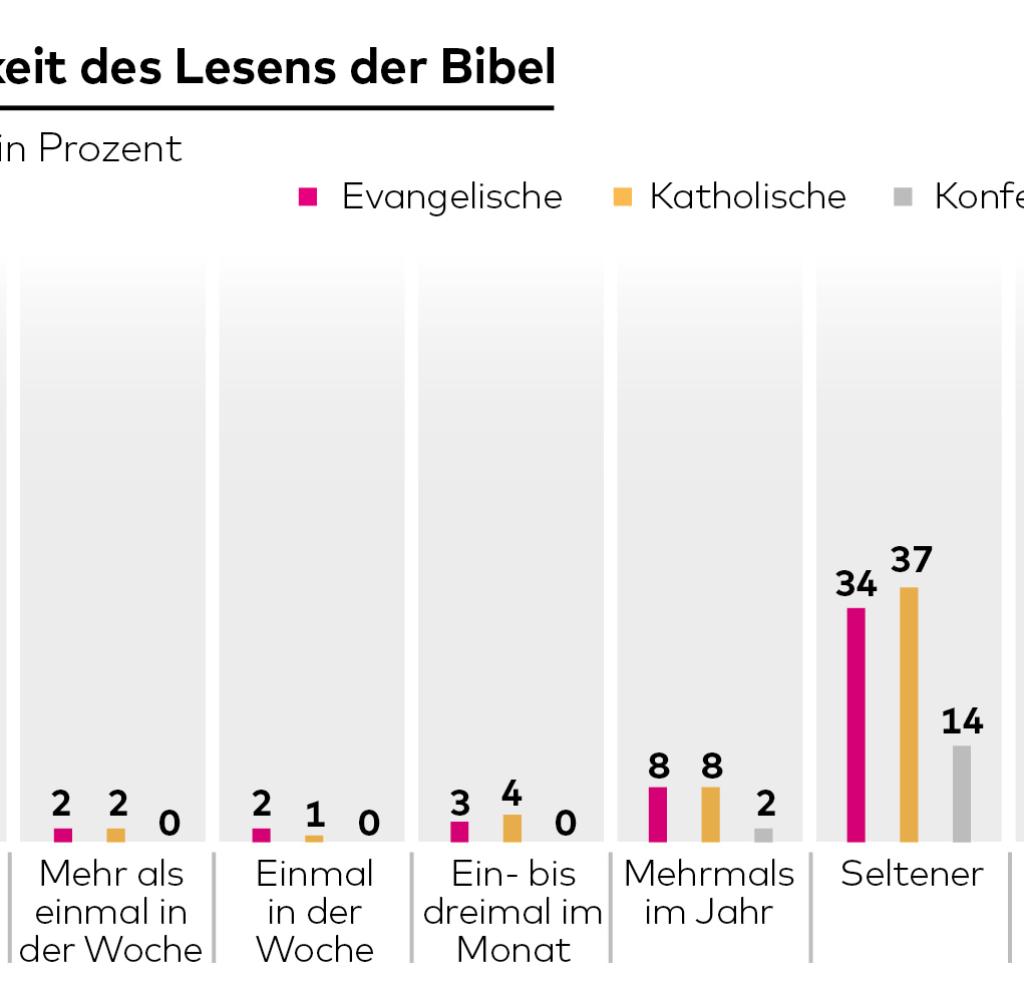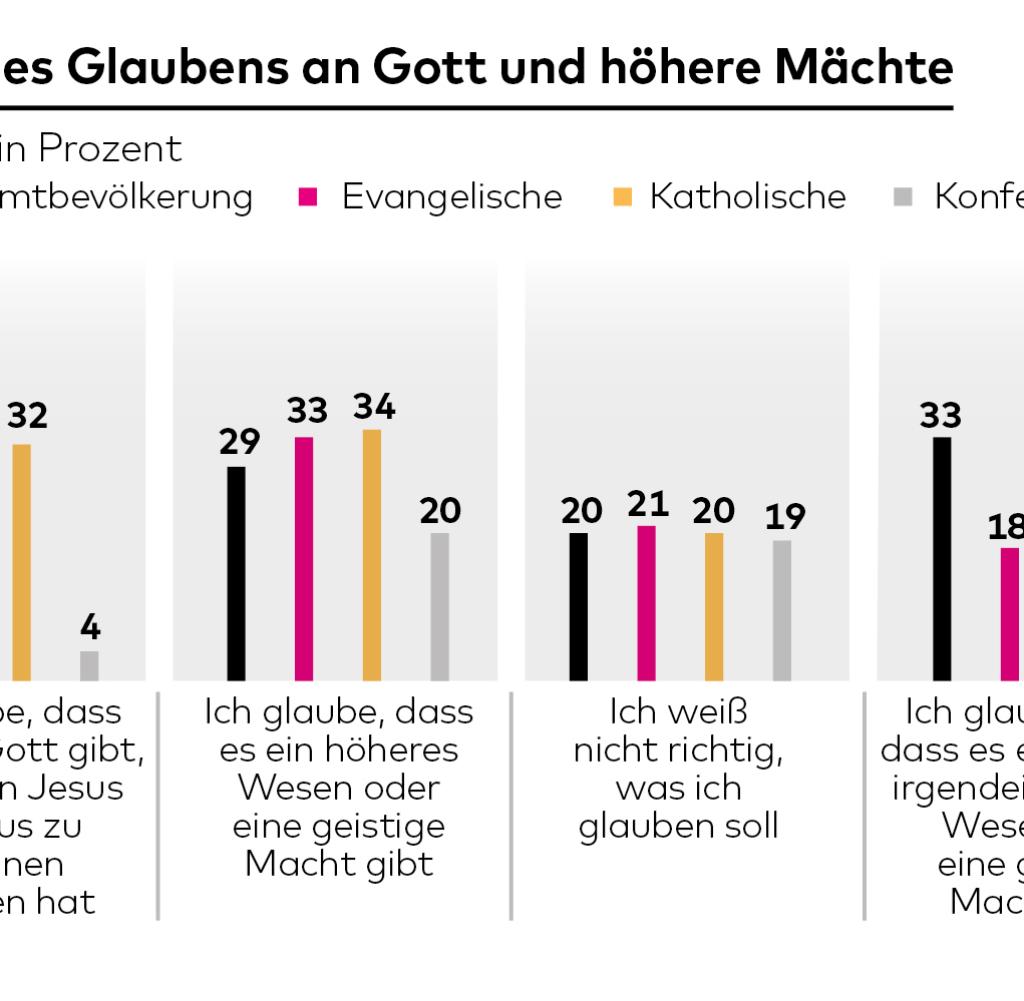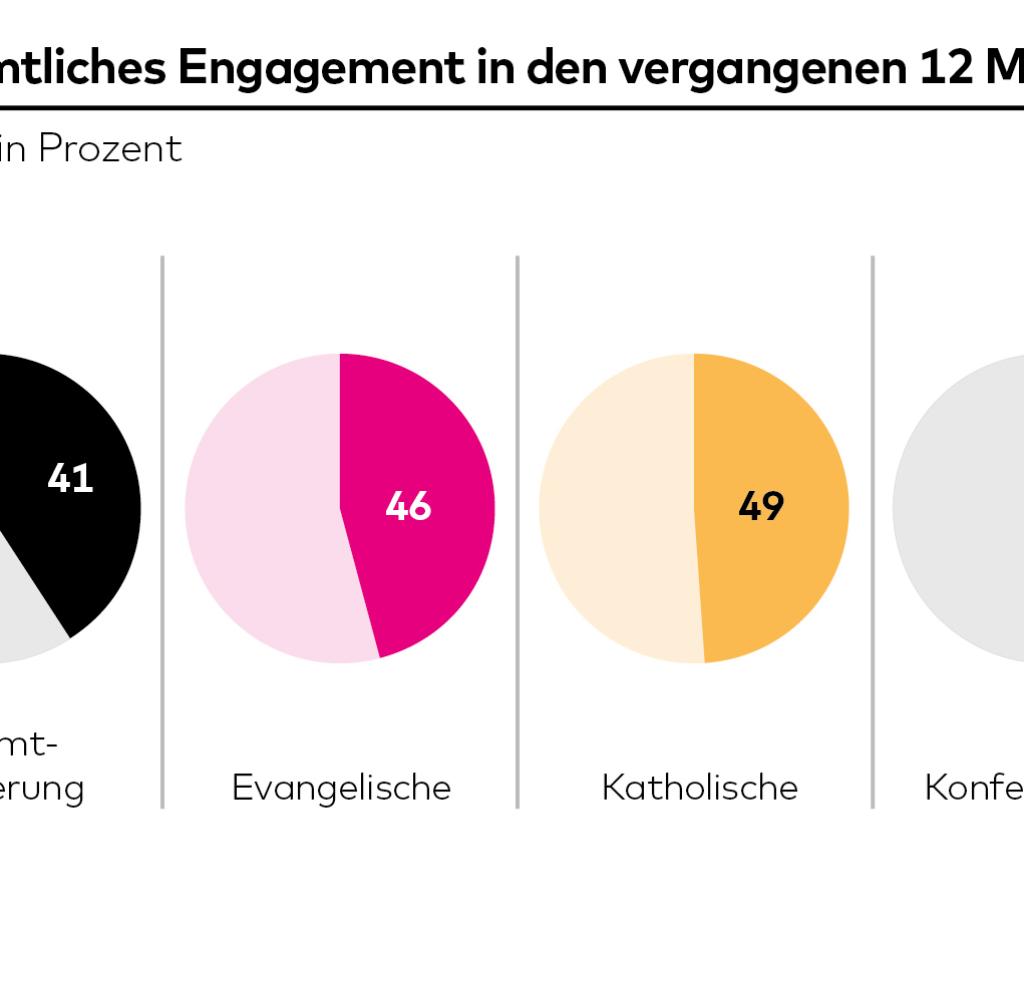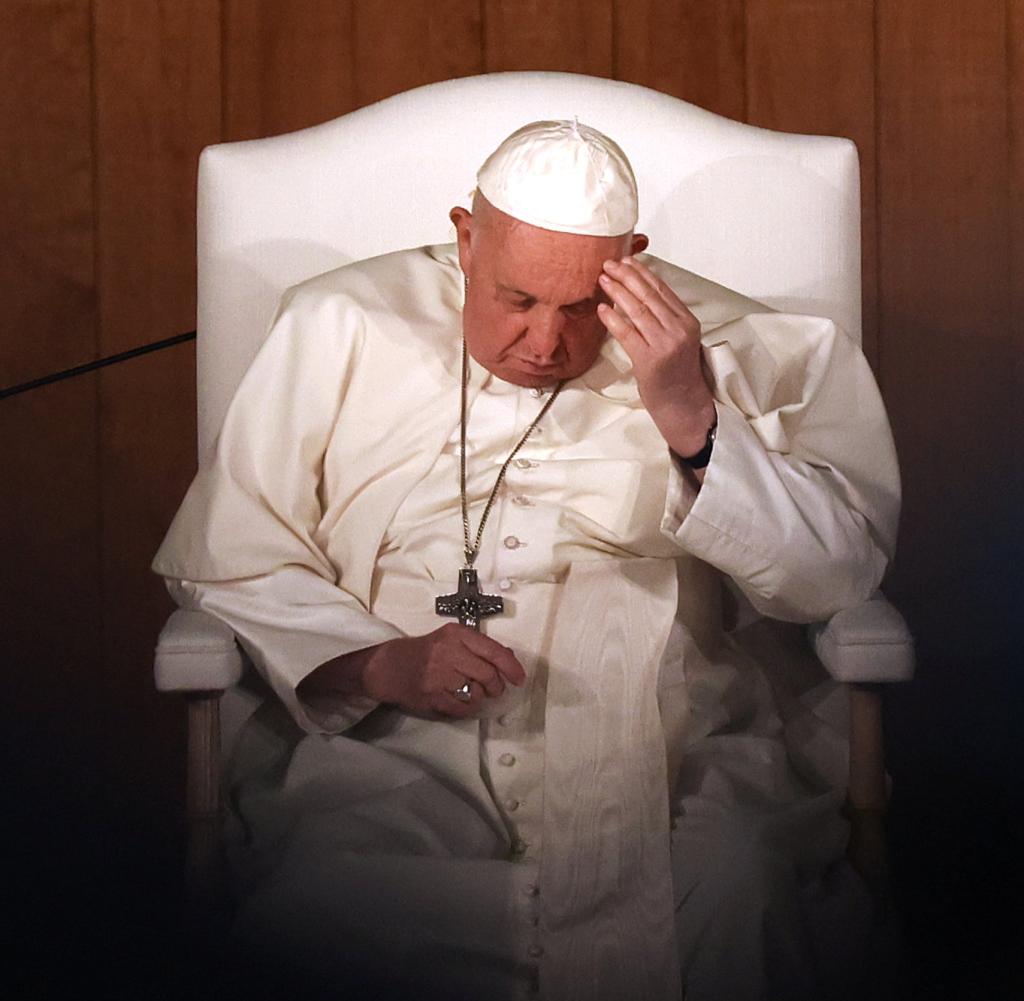vor eleven years ago, three quarters of the Protestant church members at the time said that leaving was out of the question for them. But now only 35 percent of the remaining members say they definitely want to stay in the church. It is even more dramatic among Catholics: among their already dwindling number, only 27 percent have ruled out leaving the church. Everyone else is at least considering him.
This is a central finding of the new church membership survey; It was carried out by the opinion research institute Forsa on behalf of the Evangelical Church in Germany (EKD) and, for the first time, the Catholic German Bishops’ Conference in autumn 2022 with 5,280 respondents from both denominations and among non-denominational people in Germany. The study is limited to Christian religiosity.
The results of the very extensive investigation, the first part of which was presented on Tuesday at the EKD synod in Ulm, must alarm both churches all the more as we know from previous surveys: Many members with a latent willingness to leave are actually saying goodbye soon.
Last year alone, 380,000 Protestants and 522,000 Catholics did this. And because the survey now makes this trend likely to further strengthen, the authors from the scientific advisory board write of a “tipping point” that the churches are facing. This could “lead to significant instabilities and disruptive crashes in the next few years”.
Politicization does not play the main role
When it comes to the reasons why existing members are considering leaving, it is noticeable that the churches’ political positions play a comparatively minor role. Only 25 percent believe that churches should “focus more on religious issues” to avoid defections.
And to the general question to members and non-religious people as to whether the churches should generally concern themselves less with politics and instead “limit them to dealing with religious questions”, more than 60 Catholics and Protestants each agreed “not at all” or “not at all”. . Only among the non-religious do a majority of 58 percent believe that churches should limit themselves to religion.
Source: Infographic WELT
On the other hand, 43 percent of church members of both denominations stated the opposite that their willingness to leave would decrease “if the church became more socially and politically committed.” But the statement that received the greatest approval, at 77 percent, was that they would stick with it if the churches “confessed more clearly” “how much guilt they have shouldered.”
While this statement is particularly relevant for the Catholic Church, which has been particularly rocked by abuse scandals, it affects both churches that 27 percent of all remaining members say that they would “definitely” leave, no matter what the churches do.
The authors also see this fundamental distance, which cannot be influenced by the actions of the institutions, on the rise in other aspects. Religious practices such as praying and attending church services are declining sharply everywhere. The Catholics, who used to be more active, have reached the lower level of the Protestants. And in general, the Christian image of God only convinces a few people.
Source: Infographic WELT
Source: Infographic WELT
Only 19 percent of the total population believe “that there is a God who has revealed himself in Jesus Christ.” Somehow “a higher being or a spiritual power” is imagined by 29 percent. Everyone else either doesn’t know what to believe or explicitly “doesn’t believe that there is a God, any higher being, or any spiritual power.”
The latter was stated by 33 percent. Accordingly, around 50 percent of the population as a whole place their religious self-assessment on one of the three lowest levels on a scale from one (“not religious”) to ten (“religious”).
Source: Infographic WELT
Based on these findings, the authors conclude that today one has less to speak of religious indifference than in the past among those who are distant from the church or who have left the church, but rather of “religious alienation”. It has “become so big that religion is perceived as something culturally alien and therefore a threat to one’s own identity.”
The study deduces from this that, at least in Germany and Central Europe, there is a broad trend towards saying goodbye not simply to the churches, but to religiosity as such.
The conclusions drawn in the text from this secularization thesis are serious: “Church action can no longer assume, on the basis of empirical data, that religiosity is an anthropological constant that cannot go back.” And further: “If religion emerges from the life of If it can disappear from individuals, then it can even disappear from societies. There is no anthropological safety net for church action.”
This is, of course, highly controversial among both religious sociologists and theologians. On Tuesday, at the same time as the study was published, several members of the scientific advisory board – including the Munich theologian Reiner Anselm, who is very involved in the EKD – distanced themselves in the Protestant magazine “Sign of the Times” explicitly from the thesis that religion will simply disappear. The study “pushes into the background” the need to “perceive and take people’s individual religious forms seriously,” write the theologians.
Large majorities want fundamental reforms
Of course, the study shows that religiosity is not manifest outside the churches. For example, among non-religious people, all religious ideas, such as the image of God, are either much less developed than among church members or are not present at all. And institutional alternatives to the large churches, such as free churches, are also affected by withdrawals – while at the same time esoteric spiritualities are on the decline.
The study even derives some good news for the churches from this: “Religiosity outside of the church is not serious competition for the churches. Because it is also subject to significant social marginalization and destabilization,” the text says. The churches are still “the most important representatives of religion in Germany”, and faith without affiliation can “only be empirically determined in relatively few”.
Source: Infographic WELT
This corresponds to the fact that in East Germany the church members still there – mostly Protestants – have a higher level of church loyalty than is the case in the West. It seems as if there was something like a motto like “If Christian religiosity, then church.”
This makes it all the more important for churches to respond to the expectations of those who are actually interested in Christian things. It is noticeable that religiosity is at least appreciable when it comes to raising children or going through difficult phases in life. Here, religion has “some” or “a lot” of meaning for around half of church members. But church is largely irrelevant to one’s own political views. This means that the institutions should also be politically active, but you cannot let them shape you politically.
One of the most important expectations, however, is that the churches reform. No less than 96 percent of all Catholic church members surveyed agreed with the sentence that their own church “must fundamentally change if it wants to have a future.” Among Protestants, 80 percent say this about their church. And among Catholics, 95 percent believe that their church should “allow priests to marry.”
This is also an example of how Catholics’ ideas about their church are becoming more and more similar to those of Protestants. “Almost none of the traditional denominational stereotypes can still be empirically confirmed today,” says the study text. And that in turn means that the Catholic Church, at least in Germany, is confronted with even greater demands for change than the Protestant Church. “Catholics expect nothing different from their church than Protestants,” write the EKD Council Chairwoman Annette Kurschus and the Catholic Bishops’ Conference Chairwoman Georg Bätzing in the foreword and add: “The pressure on the Catholic Church to reform is greater.”


